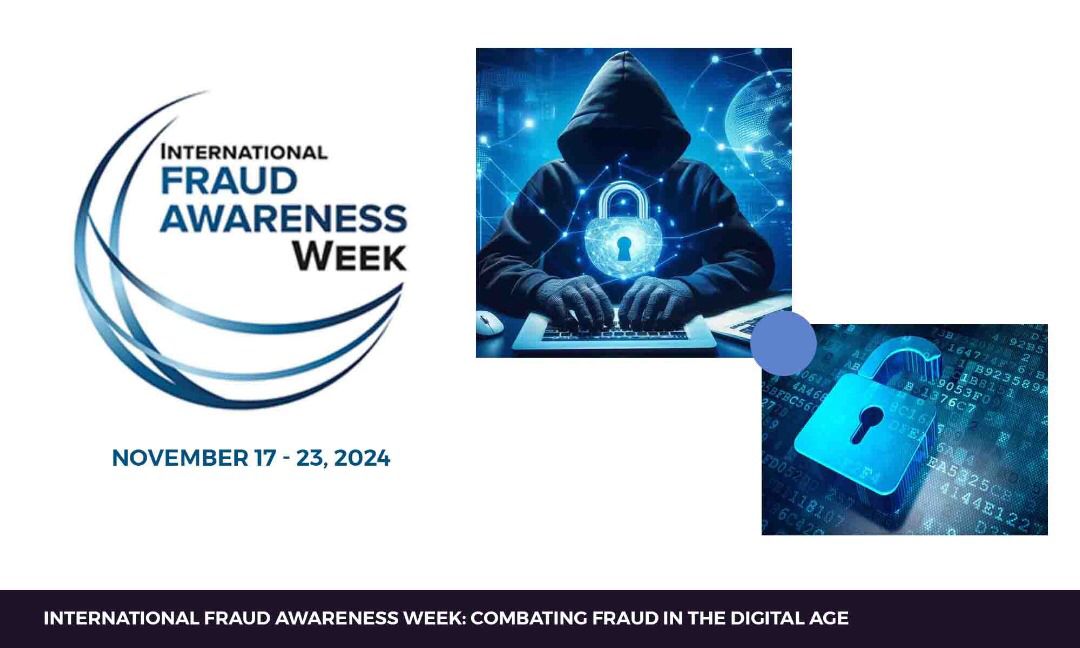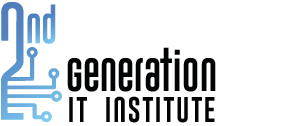Fraud Awareness: Don't be a Victim

What is International Fraud Awareness Week?
International Fraud Awareness Week, organized by the Association of Certified Fraud Examiners (ACFE), is a global movement to raise awareness about the impact of fraud and how to fight it. Fraud is a significant global issue, with estimates showing it costs organizations billions annually. From financial losses to reputational damage, the effects of fraud can be devastating.
In the digital era, fraud takes many forms:
- Online scams that target unsuspecting victims.
- Identity theft resulting from stolen personal data.
- Corporate data breaches that expose sensitive information.
- Social engineering attacks where trust is exploited to gain access.
By building awareness and taking proactive measures, individuals and businesses can reduce their vulnerability to these threats.
Types of Fraud in the Digital World
The digital age has introduced both opportunities and challenges. While technology enables efficiency and innovation, it also opens doors for fraudsters to exploit weaknesses. Here are some common types of fraud today:
- Phishing and Online Scams: Fraudsters trick victims into providing sensitive information through fake emails or websites.
- Social Engineering: Manipulating individuals into divulging confidential information.
- Data Breaches: Unauthorized access to an organization’s systems to steal valuable data.
- Identity Theft: Using someone’s personal data to commit financial or online fraud.
- Cryptocurrency Scams: Deceptive schemes involving digital currencies like Bitcoin.
Understanding these threats is the first step in safeguarding yourself and your organization.
How IT Professionals Combat Fraud
In the fight against fraud, IT professionals are on the front lines. Here are some of the ways technology and IT skills help prevent and detect fraud:
- Cybersecurity: Protecting systems, networks, and data from unauthorized access.
- Ethical Hacking: Identifying vulnerabilities in systems before fraudsters can exploit them.
- Data Analytics: Detecting unusual patterns or anomalies that may indicate fraudulent activity.
- Programming and Automation: Developing tools and scripts to streamline fraud detection.
For example, ethical hackers use penetration testing to simulate cyberattacks, helping organizations identify weaknesses. Data analysts employ machine learning algorithms to uncover suspicious behavior in financial transactions. By mastering these skills, IT professionals play a pivotal role in making the digital world safer.
Tips to Protect Yourself and Your Data
Fraud prevention isn’t just for IT experts, it’s everyone’s responsibility. Here are some practical tips to protect yourself:
- Secure Your Accounts: Use strong, unique passwords and enable two-factor authentication wherever possible.
- Verify Sources: Be cautious when clicking on links or sharing information online. Always verify requests for sensitive details.
- Update Regularly: Keep your software and devices up to date to prevent vulnerabilities.
- Monitor Financial Activity: Regularly check your accounts for unauthorized transactions.
- Stay Informed: Educate yourself about the latest scams and fraud tactics.
By adopting these practices, you can significantly reduce your risk of becoming a victim of fraud.
Our Commitment to Fraud Prevention
At 2nd Generation IT Institute, we understand the critical role education plays in combating fraud. That’s why we offer a range of programs designed to equip students with in-demand skills, including:
- Cybersecurity: Learn how to protect data, networks, and systems from cyber threats.
- Ethical Hacking: Master penetration testing and vulnerability assessments.
- Data Analytics: Use data to identify and respond to fraud patterns.
- Programming: Build secure systems and automate fraud detection processes.
Our graduates go on to become cybersecurity analysts, ethical hackers, data scientists, and IT professionals who actively contribute to fraud prevention efforts.
Join Us in Fighting Fraud
International Fraud Awareness Week is a reminder that everyone has a role to play in the fight against fraud. By staying informed, adopting safe practices, and acquiring the right skills, we can create a more secure digital future. Ready to take the next step? Explore our courses in cybersecurity, ethical hacking, and data analytics to become a fraud-fighting expert. Together, let’s build a safer, fraud-free world.
Learn more about our programs and how you can join the fight against fraud. Contact us today or visit 2nd Generation IT Institute.
Contact
Explore
Newsletter
Sign Up for our latest news & articles. We won’t give you spam mails.
© All copyrights reserved 2023




